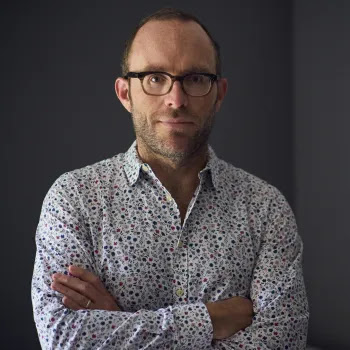Antoine Wilson
Antoine Wilson is the author of the novels Panorama City and The Interloper. His work has appeared in The Paris Review, StoryQuarterly, Best New American Voices, and The Los Angeles Times,  among other publications, and he is a contributing editor of A Public Space. A graduate of the Iowa Writers’ Workshop and recipient of a Carol Houck Smith Fiction Fellowship from the University of Wisconsin, he lives in Los Angeles.
among other publications, and he is a contributing editor of A Public Space. A graduate of the Iowa Writers’ Workshop and recipient of a Carol Houck Smith Fiction Fellowship from the University of Wisconsin, he lives in Los Angeles.
Wilson's new novel is Mouth to Mouth.
My Q&A with the author:
How much work does your title do to take readers into the story?Learn more about the book and author at Antoine Wilson's website and Twitter perch.
Mouth to Mouth starts with an anonymous narrator bumping into a college acquaintance while waiting out a flight delay at JFK. That acquaintance, Jeff Cook, now a successful art dealer, invites the narrator for a drink in the first class lounge, where he proceeds to unspool the story of his rise, a story that kicks off with his rescuing a drowning man on the beach in Santa Monica. That event—traumatic, heroic, overwhelming—shapes the course of his life to come.
That's the title on a literal level, obviously. But baked into the structure of the novel is the telling of the story itself. How reliable is Jeff? What are his motives for telling our narrator? That’s the second layer, a story that’s transmitted face to face—the Bible uses mouth to mouth at one point to mean this—and a story that’s related second-hand. This book is at least as much about storytelling (the narratives we tell ourselves and those we share with others) as it is about saving a life, so the two meanings overlap nicely in Mouth to Mouth.
What's in a name?
The fun thing about Francis Arsenault’s fancy name is that it’s a construction. He was born Frank Busse. I’m fascinated by people who rename themselves.
How surprised would your teenage reader self be by your novel?
My teenage self would be surprised by how conventional it is, I think. I mean that it’s a realist novel rather than a surrealist stage play. He would appreciate the brevity of it.
Do you find it harder to write beginnings or endings? Which do you change more?
I don’t know the ending when I set out to write something, so in a sense the ending is ever-changing, hovering in a kind of subjunctive mood the whole time I’m working. Once it’s arrived at and written, though, it doesn’t usually change much. The ending seems like it would be more difficult, but once I’m there, I feel like I’ve got everything necessary to put it together, and, if all goes well, a dollop of inspiration.
Beginnings used to be easy for me, when I was younger. Now I write for a bit, start over, write a bit further, start over, write further, start over, and so on. So thebeginning gets written many times. Everything relies on it. If there’s a problem with an ending, I like to tell my students, it’s usually in the beginning somewhere.
Do you see much of yourself in your characters? Do they have any connection to your personality, or are they a world apart?
Only in glimpses. Like when you see your kid make a gesture you recognize as your own. The zone from which characters emerge is a miasma of personal observation, internal functions, types, vague recollections of books I’ve read, and so on. From my perspective, they seem very cobbled together. Little Frankenstein’s monsters. Of course, I do my best to spackle the cracks so that from the reader’s perspective they appear as coherent wholes.
What non-literary inspirations have influenced your writing?
Much of Mouth to Mouth takes place in the so-called art world—Beverly Hills in the mid-1990s, to be specific—and the novel calls into question all kinds of issues of valuation and commerce pertaining to the buying, selling, and collecting of fine art. But putting the financial aspect aside, the book is also inspired by art and artists from that world. Agnes Martin—whose Writings is incredible—has a cameo, and Jeff Cook describes a profound aesthetic encounter with a piece by Joan Mitchell, one of my favorite painters. Several fictional artists and their artwork appear in the novel, transparent sublimations of my own fine art fantasies.
My Book, The Movie: Panorama City.
--Marshal Zeringue
